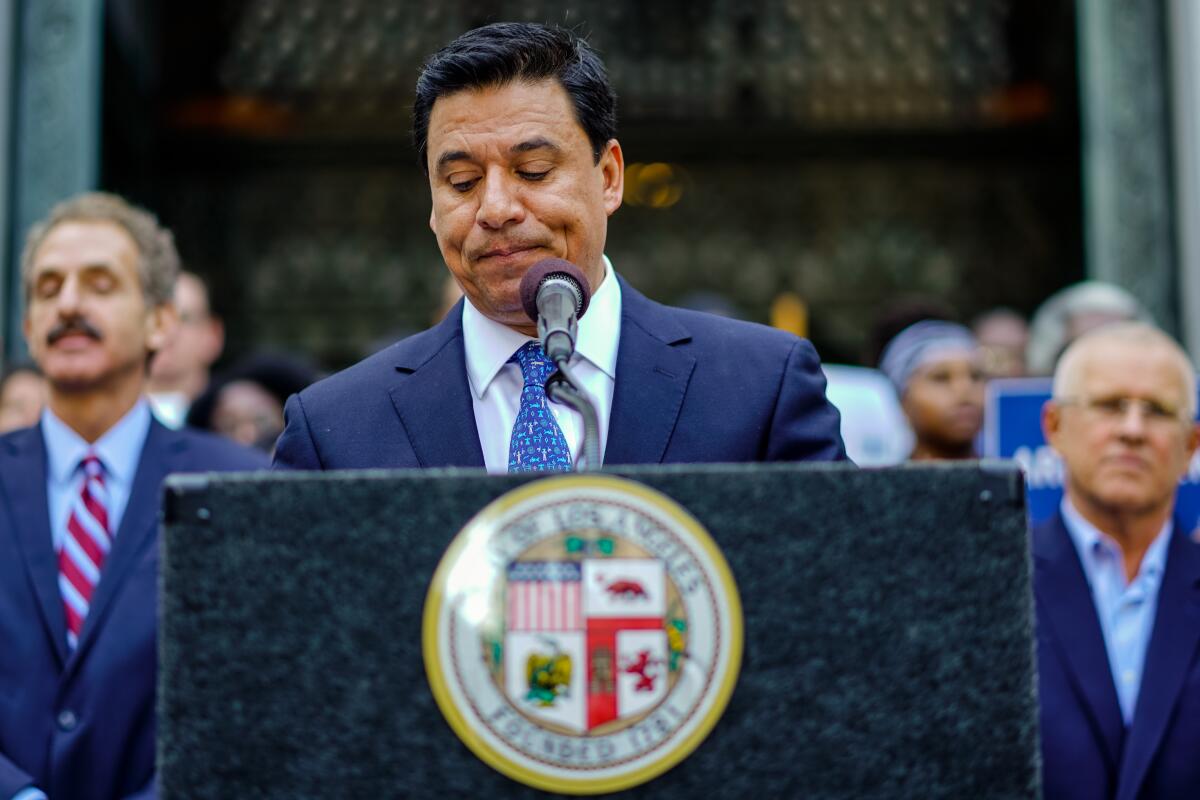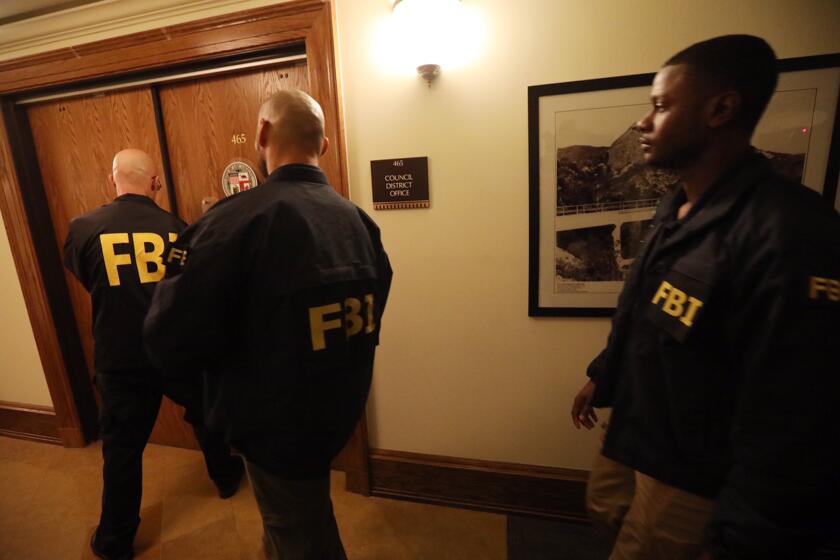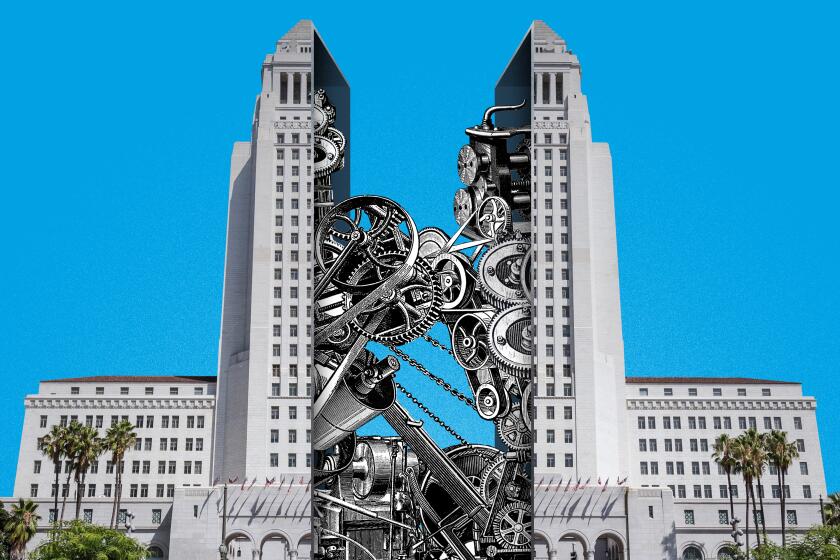Editorial: Jose Huizar’s corruption case may be over, but City Hall has yet to clean up its act

- Share via
Finally, former Los Angeles City Councilman Jose Huizar has admitted he was the leader of a criminal enterprise in City Hall that extorted from developers to get rich and maintain his political power.
On Friday, Huizar pleaded guilty to racketeering and tax evasion rather than face trial next month, and he is facing a prison sentence of between nine and 13 years. His deal with prosecutors comes after developers were convicted in two earlier trials, and after an aide, political consultants and lobbyists pleaded guilty to felony charges for their involvement in the scheme.
In the agreement with federal prosecutors filed last week, Huizar acknowledged the ugly truth about how vulnerable the city’s land-use approval is to corruption. Council members wield tremendous power over development decisions worth millions of dollars, and they can use that influence to extract from developers public benefits, such as funding for a park, or to benefit themselves in the form of campaign contributions.
Los Angeles City Hall’s dysfunctional relationship with real estate development has contributed to so many of the city’s ills.
Huizar used his power as the council member representing a booming downtown and as chair of the council’s land-use committee to pressure developers for cash, campaign contributions, casino chips, flights on private jets, prostitutes and other gifts worth a total of $1.5 million. In exchange, Huizar helped their projects and businesses. For example, Huizar admitted helping one developer, in exchange for political contributions, win approval for a 35-story tower in the Arts District with fewer affordable housing units than the Planning Commission required.
Huizar’s case may be the extreme example of how this culture breeds corruption, but the city’s dysfunctional development system and political power dynamics have long undermined progress and public trust. Los Angeles city leaders cannot put the Huizar scandal behind them until they reform the systems that allowed his corruption in the first place.
Take, for example, how Huizar came to represent downtown. Los Angeles has a redistricting commission to draw political districts, but it’s largely controlled by City Council members, who have used that power to reward their allies and hurt their enemies. In 2011, then-council President Herb Wesson oversaw a redistricting process that stripped a development-rich section of downtown from an adversary, then-Councilmember Jan Perry, and gave it to Huizar, his “best friend” on the council.
Los Angeles City Hall has been rocked by scandal after scandal, but now there’s momentum to reform city government.
Good-government groups, the Times editorial board and most city leaders now support establishing an independent redistricting commission. Though it won’t eliminate corruption, it would ensure that politicians aren’t drawing district lines to serve their own interests, which can reduce the risk of corruption.
The city also has to overhaul its development rules to remove political influence. In fact, federal authorities said Huizar’s scheme to shake down developers was enabled by L.A.’s convoluted and highly political approval process. As long as council members retain unchecked authority over land-use decisions in their districts, the entire process is tainted. Developers need to curry favor. Neighbors are distrustful. And decisions are allowed to be negotiated on a case-by-case basis behind closed doors, without a guarantee that the result will be in the best interest of the community and the city.
Huizar’s plea deal shouldn’t be the end of the story. The pay-to-play corruption scandal will continue to hang over Los Angeles until leaders fix the systems and culture that enabled him.
More to Read
A cure for the common opinion
Get thought-provoking perspectives with our weekly newsletter.
You may occasionally receive promotional content from the Los Angeles Times.












